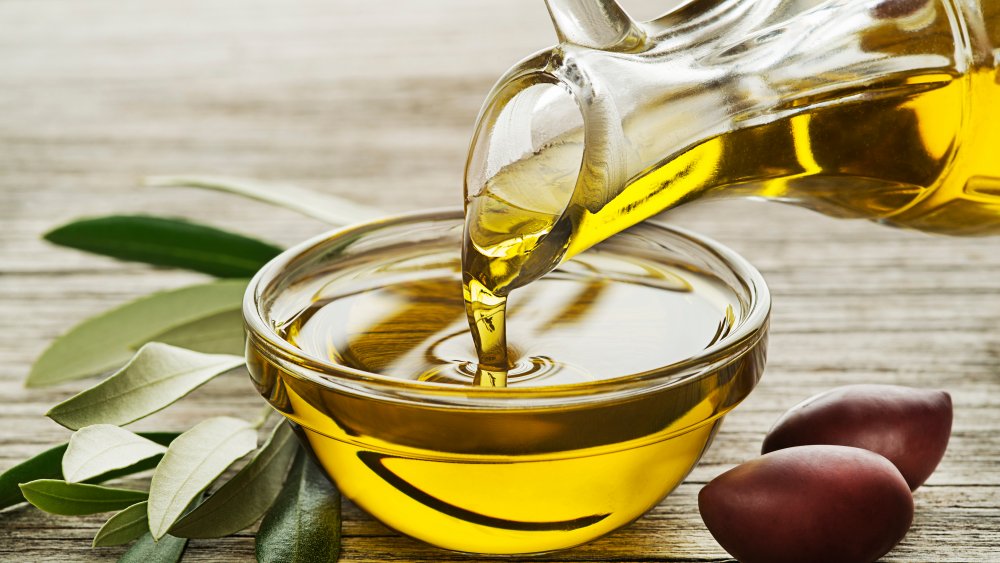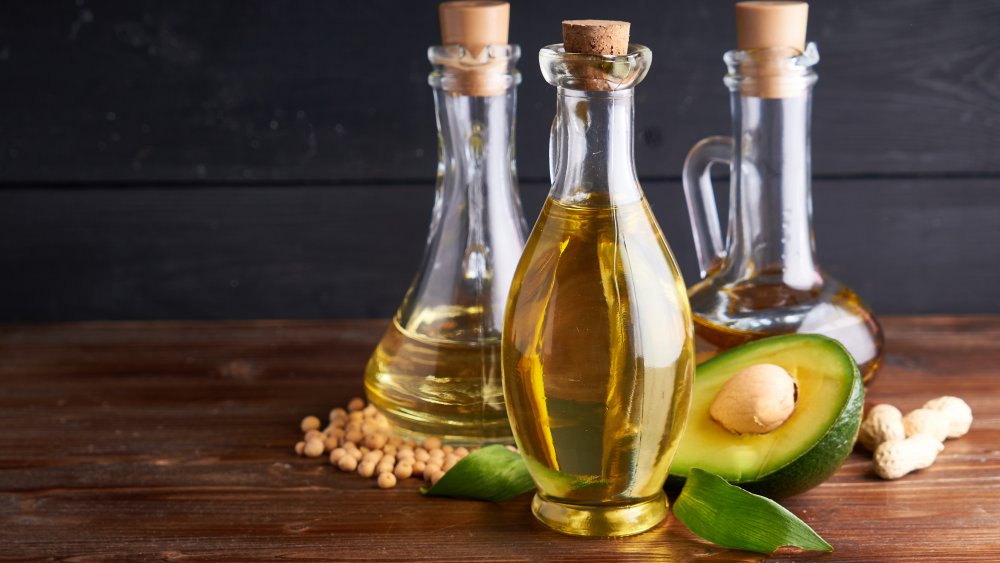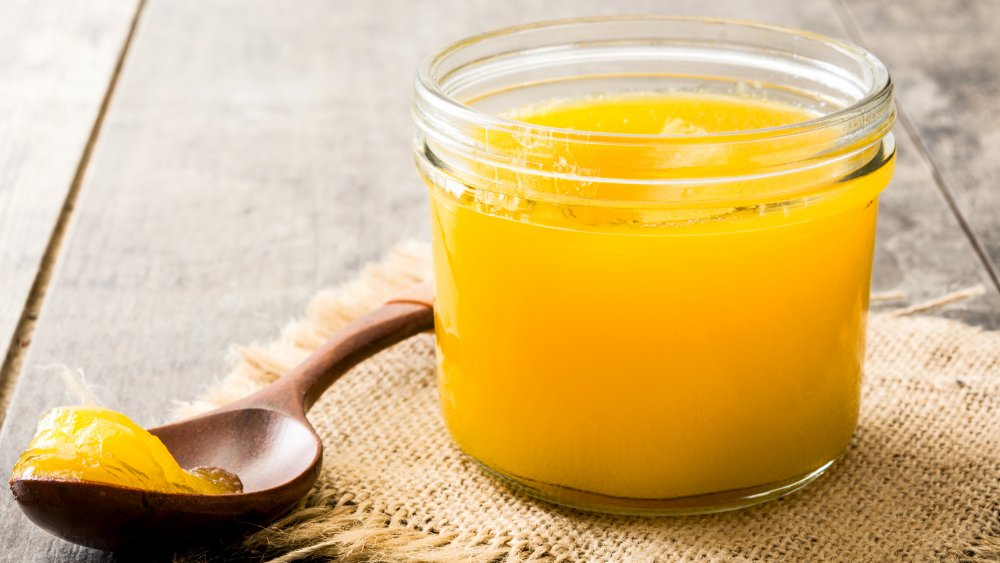Here's What You Can Substitute For Olive Oil
Olive oil has long been described to have multiple health benefits — plus it tastes good, too. The Mayo Clinic attributes these health benefits to forms of fats called monounsaturated fats (MUFAs) and polyunsaturated fats (PUFAs). MUFAs and PUFAs are said to help reduce bad cholesterol and improve risk factors related to heart disease. It's important to remember, however, that while olive oil is a healthy choice of fat and calories, the oil is not a dietary supplement and can't turn an unhealthy food healthy.
Used in everything from baking to sautéing and poaching to basting, olive oil has many diverse uses in the kitchen. Almost a universal cook-all ingredient, this oil is a typical staple in most kitchens. A great ingredient, until you run out.
So what can you substitute when the olive oil goes missing?
Olive oil isn't the only healthy cooking oil
If you run out of oil, there are substitutes that don't depend on the olive. Better Homes and Gardens recommends trying vegetable, walnut, peanut, coconut, or sunflower oil. The description "vegetable" oil is definitely vague but may include a number of different plant-based oils. The Institute of Shortening and Edible Oils notes that soybeans are a common oil base in the U.S. If using these oils in a liquid form, you should be able to substitute a similar amount the oil as you would when using olive oil (for example 2 cups of oil B for 2 cups of oil A). Do note, however, that different oils may affect both the taste of your dish and also the nutritional value.
Try a solid fat instead of a liquid olive oil substitute
Another substitute for olive oil can be to use a solid fat, such as butter, ghee, shortening, or even lard. Allrecipes suggests 3 tablespoons of olive oil to every 1/4 cup of butter. Remember that while butter and solid fats can be melted to liquid form, this exchange won't work the opposite direction such as using olive oil to cream butter in a recipe. Butter can provide a close mimic for olive oil in certain, but not all recipes.
Shortening and lard will definitely work to keep food from sticking but have significantly different health and taste properties than olive oil. A healthier alternative may be to try ghee, described by Healthyish as a clarified butter popular in Ayurvedic health practices. Ghee presents as a lightly caramelized butter since all the milk fats have been cooked away, creating a slightly nutty oil with a high smoke point — that means it's good for cooking and won't easily burn.
So if that olive oil bottle runs empty in the cupboard, don't despair, substitutes are there. Try an alternative oil based on a different fruit, nut, or vegetable that will match your dish. Alternatively, try a solid fat like butter or shortening instead.


